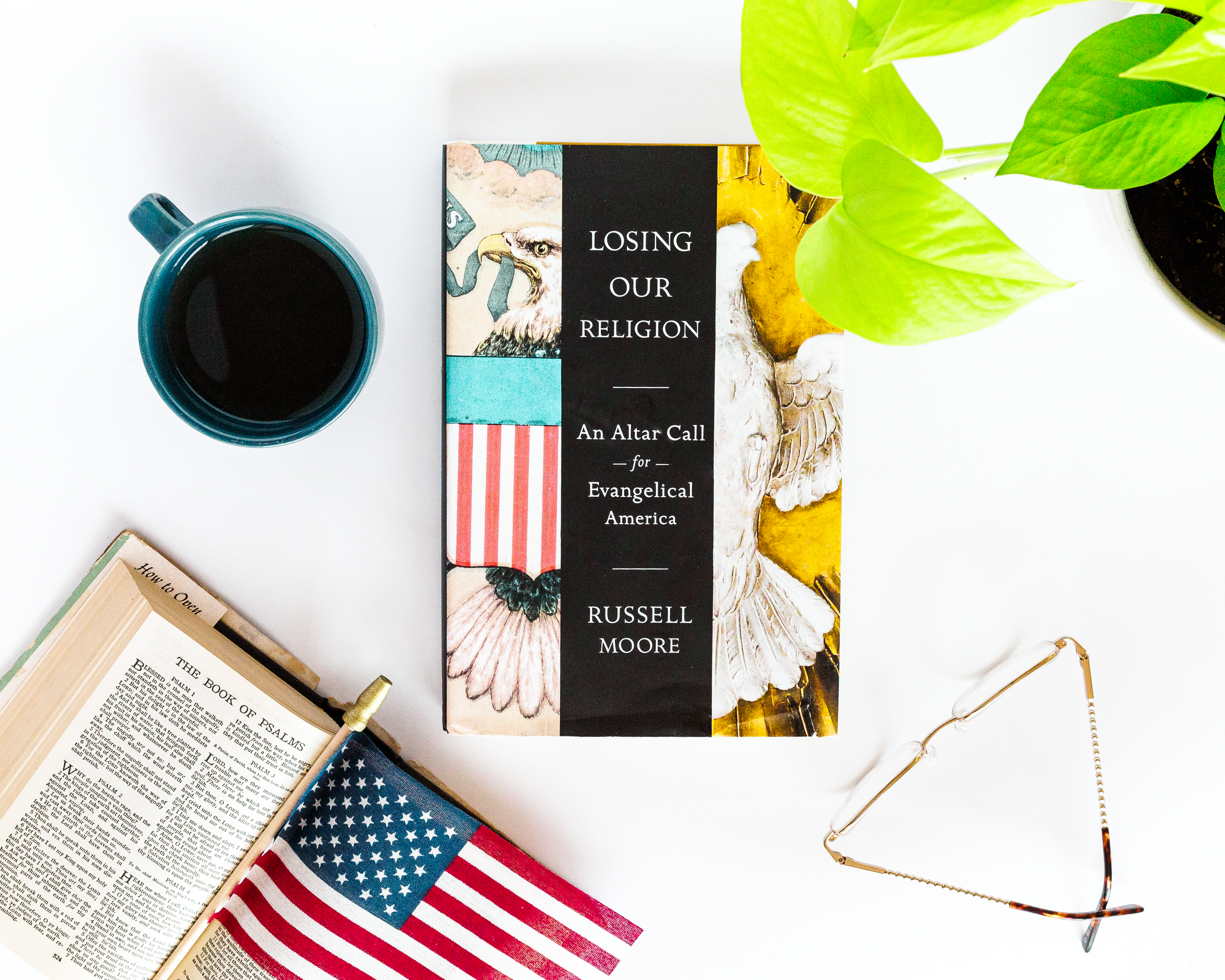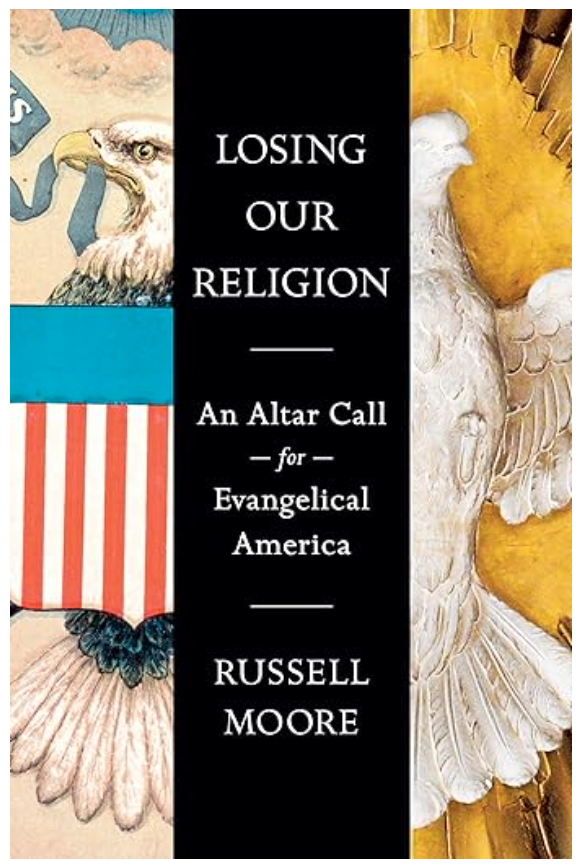This post contains affiliate links. I received Losing Our Religion compliments of Sentinel in exchange for my honest review.
Losing Our Religion is the latest book by pastor, theologian, and editor-in-chief of Christianity Today, Rusell Moore. This book finds Moore detailing his experiences as a President of the Southern Baptist Convention’s Ethics and Religious Liberties Convention and how he eventually departed from the organization due to compromises that were made. Moore, in a sense, lost his religion but what he’s retained all along is his hope in the gospel of Jesus Christ. Sharing his personal experiences paved the way for Moore to draw on broader cultural experiences in which the American evangelical church has compromised in recent years often for political reasons.
Moore shares many wise observations in Losing Our Religion and I’ll be thinking about them for some time. A few of the ones that struck me most are:
“Jesus’ actions in the temple were not a detour from his trek to the cross, but the very path he took to get there,” (pg. 59).
“Christian nationalism cannot turn back secularism, because it is just another form of it. In fact, it is an even more virulent form of secularism because it pronounced as ‘Christian’ what cannot stand before the judgment seat of Christ,” (pg. 120).
“When a religion is seen as a political agenda in search of a gospel useful enough to accommodate it, one will end up pleasing those who see the primacy of the politics while losing those who believe the gospel,” (pg. 121).
He also included observations from others, including journalist Tim Alberta who said, “In this environment, a church leader’s stance on biblical inerrancy is less important than whether he is considered ‘woke,'” (pg. 67).
I’m grateful for Losing Our Religion because it encouraged me to continue cultivating convictions and to hold fast to them no matter what. Referring to a quote from author Hannah Arendt, Moore pointed out that when it comes to choosing the lesser of two evils, we often forget that we are still choosing evil. So, what is Moore’s solution when it comes to being a church without compromise?
On page 145 he articulated, “Maybe the reason we as Christians seem to seethe with resentment and find our loyalties in tribal factions and ideologies is because we’ve lost that sense of standing in worshipful awe before a God who is not a set of doctrines or a motivation for institutional survival or a national deity or a political mascot. Maybe our clamoring for those sorts of hive minds is because we’ve become bored—unsurprised by joy, unamazed by grace. Perhaps the answer for awful times is an awe-full solution.”
I couldn’t agree more. To conclude Losing Our Religion when he encouragingly wrote, “The challenge before us is not to ‘Make America Great Again’ but to ‘Make Evangelicalism Born Again.’ And that’s not a strategy. That’s a prayer. Maybe when we’re lost enough, we can re-find the Way. Maybe all the dangers and toils and snares are worth it. Maybe only when we lose our religion will we be, once again, amazed by grace,” (pg 254).
I was so encouraged upon reading Losing Our Religion and I hope to see many American Evangelicals reading it, especially with an election approaching.
Losing Our Religion is a greatly encouraging read and I eagerly anticipate reading more from Moore in the future.











